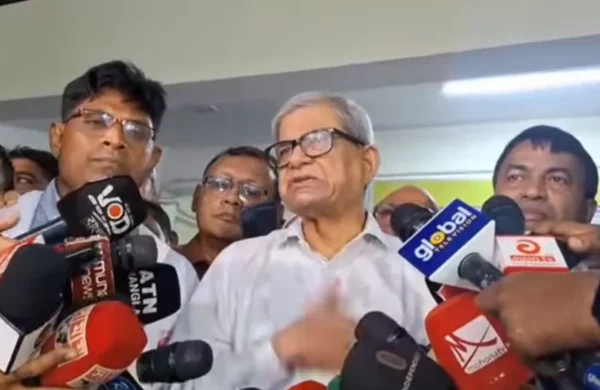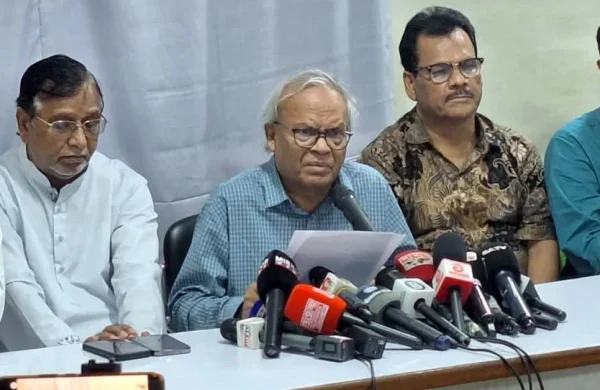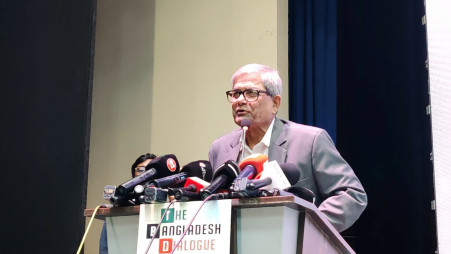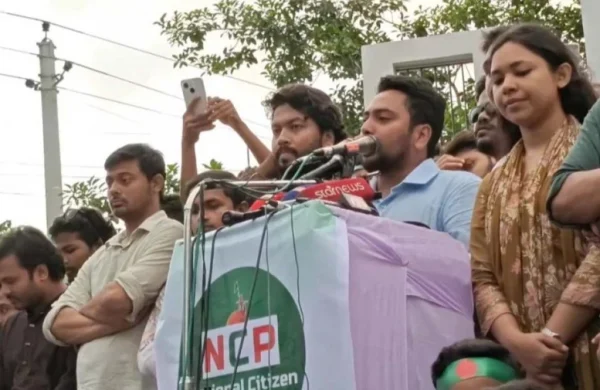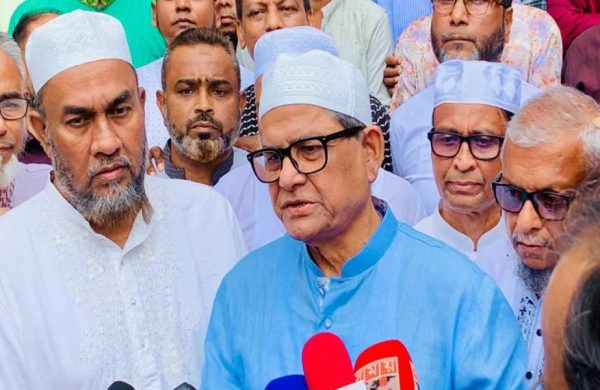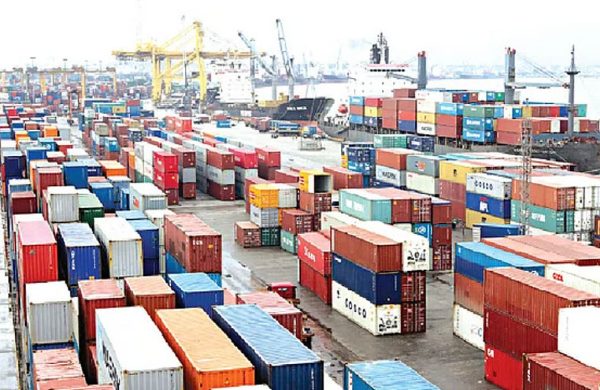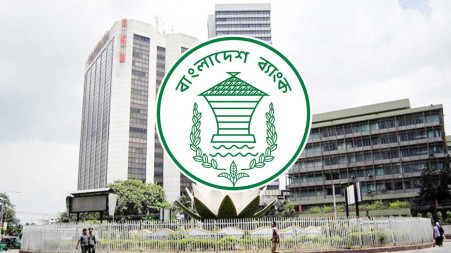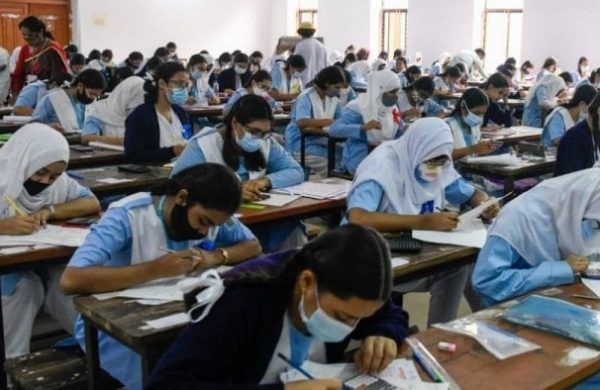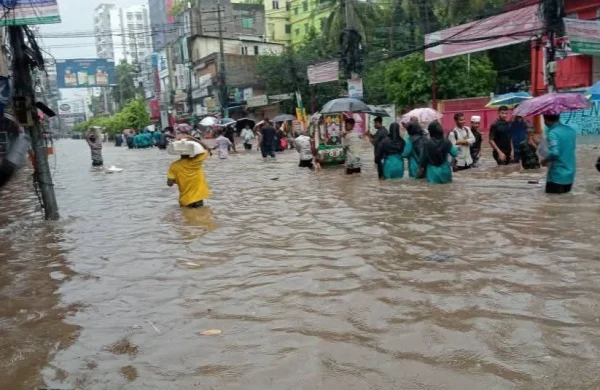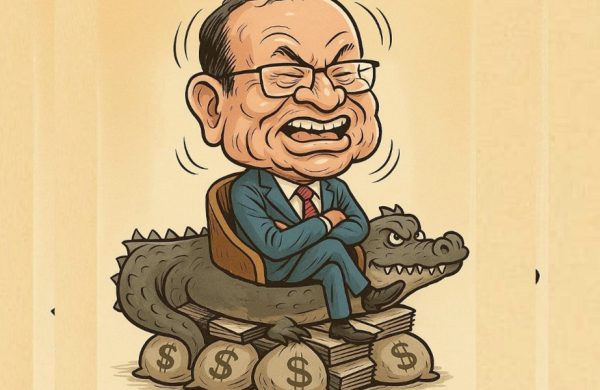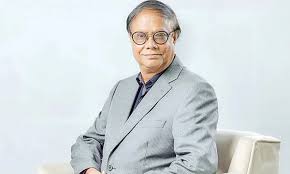Shifting sands: India’s diplomatic compass points to BNP and Tarique
- Update Time : Wednesday, July 9, 2025
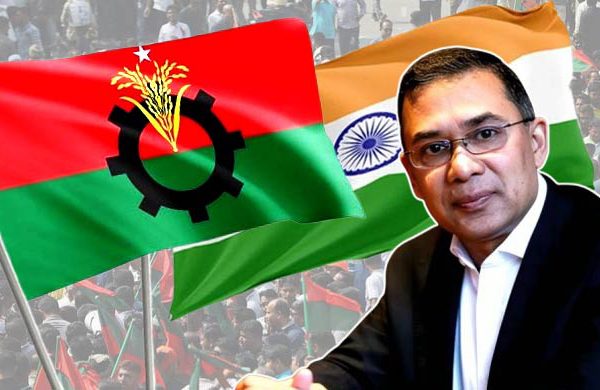
TDS Desk:
After the fall of its principal ally in Bangladesh, Awami League, India is now recalibrating its diplomatic approach towards the Bangladesh Nationalist Party (BNP), led by Tarique Rahman, once viewed with deep suspicion due to a controversial 2004 arms smuggling incident.
This shift comes amid a broader realignment of India’s foreign policy in response to recent political changes in Dhaka.
Although tensions between Bangladesh and India have somewhat eased following the ousting of former Prime Minister Sheikh Hasina during last year’s July uprising, full normalisation of relations remains elusive. With national elections scheduled for early 2025, New Delhi is adopting a wait-and-see attitude, prioritising the emergence of a democratically elected government before fully re-engaging.
In this new geopolitical landscape, India is reportedly considering the BNP as a potential future governing party and has begun adjusting its diplomatic priorities accordingly.
Over the past months, signs of thawing iceberg have emerged, with reduced hostility and increased engagement at both official and diplomatic levels.
A senior Indian diplomat told journalist “India hopes for a democratic and inclusive election process in February. If the BNP emerges victorious, we are open to inviting their acting chairman, Tarique Rahman, for an official visit.”
The official added that Tarique now appears more politically mature than in the past, suggesting a willingness to engage directly if circumstances change.
This evolving stance marks a departure from earlier perceptions. During the BNP-led coalition government (2001–2006), bilateral ties were strained over border security concerns and allegations of harbouring anti-Indian militant groups.
A key flashpoint was the 2004 discovery of ten truckloads of weapons at Chattogram’s CUFL jetty, which Indian officials claimed were destined for separatist groups in India’s northeast.
The incident cemented India’s distrust of the BNP leadership, particularly Tarique Rahman, whom some Indian intelligence officials accused of orchestrating covert arms shipments to ULFA and other insurgent outfits.
Major General Gaganjit Singh, former Deputy Director General of India’s Defence Intelligence Agency, said in a 2023 interview with India Today that Tarique Rahman was at the centre of these alleged clandestine operations involving the BNP and its ally Jamaat-e-Islami.
Despite this history, India appears to be softening its position.
Dr Sabbir Ahmed, a political science professor at Dhaka University, noted, “India is realising that its diplomacy focused on Sheikh Hasina or the Awami League has not yielded the desired results. They are now exploring alternatives, and the BNP seems like the most viable option.”
Analysts suggest that with Sheikh Hasina now in exile and the Awami League weakened, India sees strategic value in engaging the BNP – particularly as it seeks to distance itself from the Jamaat-e-Islami, which India continues to view as “extremist”.
The BNP’s decision to contest the 2026 elections independently, breaking its historical alliance with Jamaat-e-Islami, aligns with India’s preference to side-line Islamist parties viewed as regional security risks. Dr Ehsanul Haque of Dhaka University’s International Relations Department emphasised, “India is wary of Jamaat but sees the BNP as a viable partner. Public dissatisfaction with India’s past support for Hasina has been highlighted by the interim government, and India must address these sentiments.”
BNP leaders have reciprocated the overtures.
Following a meeting between BNP Secretary General Mirza Fakhrul Islam Alamgir and Indian High Commissioner Pranay Verma last September, Fakhrul assured Indian media that the BNP would not allow Bangladeshi soil to be used against India’s security interests.
“We’ve always had good relations with India,” Fakhrul said in an interview with ANI. “There were misunderstandings, but I think things are changing. India should understand our domestic realities and not rely too heavily on one political group.”
In a recent conversation with journalist, several officials from the Indian High Commission emphasized that India has always regarded Bangladesh as a key neighbour. This sentiment was reflected in the immediate outreach by Indian Prime Minister Narendra Modi, who extended his best wishes to Dr Muhammad Yunus shortly after he assumed the role of Chief Advisor of Bangladesh’s interim government. Prime Minister Modi later followed up with a direct phone call to Yunus.
However, the officials noted that certain statements made by some advisers and senior figures within the interim government have caused concern in New Delhi.
Among the incidents cited were two controversial social media posts – one by Information Adviser Mahfuj Alam and the other by the head of the national independent investigation commission formed to re-investigate the 2009 BDR massacre, Major General (retd) ALM Fazlur Rahman.
Notably, on December 16, Bangladesh’s Victory Day, Mahfuj Alam shared a map on Facebook that depicted Bangladesh linked with India’s West Bengal and several northeastern states. He described the region as “fragmented” and called for a “new settlement,” though the post was later deleted.
Earlier, in May, Major General (retd) ALM Fazlur Rahman sparked controversy by writing on social media that if India were to attack Pakistan, Bangladesh should take the opportunity to occupy seven northeastern Indian states.
The Bangladesh Ministry of Foreign Affairs swiftly clarified that such remarks were personal opinions and not reflective of official government policy.
Political analyst Professor Sabbir Ahmed commented on the situation, stating, “The interim government did not handle these matters well from the outset.”
Bangladesh has repeatedly cautioned the Indian media against spreading misinformation and propaganda about the country—particularly regarding alleged minority oppression and the role of the Bangladesh Army.
The interim government expressed strong reactions after former Prime Minister Sheikh Hasina began commenting on various political issues from her position in India. Following diplomatic discussions, India reportedly advised Hasina to refrain from making public statements that could strain bilateral relations. Since then, she has avoided controversial remarks for several months.
Meanwhile, the ongoing chill in relations has had tangible consequences, including disruptions in cross-border trade and visa restrictions affecting Bangladeshi citizens.
Professor Sreeradha Dutta of OP Jindal Global University warned in a recent analysis that without renewed diplomatic momentum, regional cooperation – including major infrastructure projects like the Matarbari port – could stall.
Writing in the South Asia Monitor, she emphasised, “Only inclusive elections can break this deadlock. Until then, the common people will continue to bear the costs of political friction.”
As Bangladesh moves closer to general elections, India’s evolving posture toward the BNP reflects a pragmatic recalibration – one shaped by shifting alliances, historical grievances, and the enduring imperative of regional stability.


